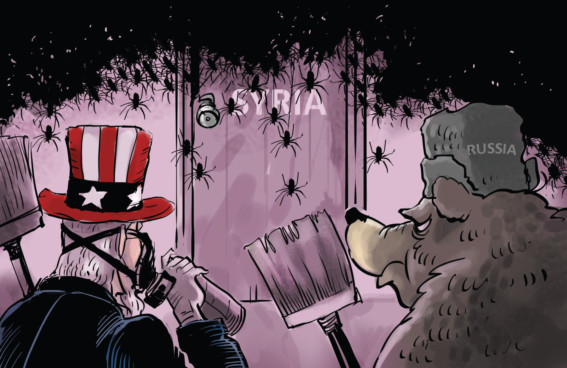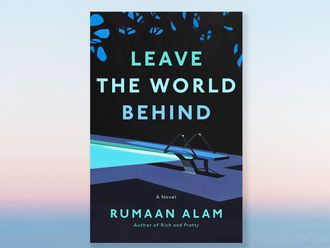
There are no good actors in the Syrian conflict. The Free Syrian Army has all but collapsed because concrete support from the international community failed to manifest. Many of its disappointed fighters have joined better-armed radical groups such as the Al Nusra Front allied with Al Qaida.
A CIA programme to train and arm ‘moderates’ is under-funded to the extent participants were thrown into the fray with insufficient bullets because US President Barack Obama feared the weapons would fall into the wrong hands.
The Syrian political opposition splintered last year when the Syrian National Council (SNC), believed to include Muslim Brotherhood members, pulled out from the Syrian National Coalition, which more or less closed the coffin on a political solution.
A collective of countries known as the Friends of Syria Group, supported by 114 states two years ago, has dwindled to just eleven. Donor fatigue has set-in and whereas the world gasped a few years ago at a Syrian death toll of 10,000, the news that 250,000 have died is making little impact. The media prefers to focus on Syrian refugees beating a trail to Europe.
In 2011, Syria’s President Bashar Al Assad blamed foreign powers and terrorists for fomenting the civil uprising that quickly morphed into all-out civil war. That was a cop-out then, an attempt to shift the blame off his government’s shoulders. But, sadly, it’s become a self-fulfilling prophecy. Al Assad recently admitted that his army has been decimated and is suffering from fatigue. That might have been good news some years ago, but not necessarily now. Most would agree that the regime which turned its army’s guns on its own people should have gone a long time ago. But were it to be dissolved in the current circumstances, it would leave a vacuum for Daesh (the self-proclaimed Islamic State of Iraq and the Levant), Al Qaida, Al Nusra — and others of a similar ilk — to take its place.
Therefore, I believe the international community should work with regime allies, Moscow and Tehran, to eliminate the terrorist groups by forming an anti-terrorist military coalition in cooperation with the regime. As painful that would be for many countries, it’s better than the alternatives.
The conflict has become a hotchpotch of foreign interventions — US, Russia, Iran, Turkey and its Lebanese satellite Hezbollah — and now Turkey is out to impose no-fly and buffer zones close to its borders once it gets a green light from the White House, which would amount to an infringement of Syria’s sovereignty — setting a precedent that Russia might be tempted to follow.
All these countries involved pull Syria in different directions and are responsible for prolonging the conflict with weapons and funding. Such competing geopolitical power plays do nothing for the Syrian people under bombardment, the terrorist sword and sieges of areas that leave civilians huddled in shelled-out buildings without water, food and medicines.
Responsible world powers should quit using Syrian soil to wage proxy wars and, instead, line-up against Daesh and its affiliates as a first step in securing the people. Together the US, Russia and Iran could lean-on Al Assad to step-down once the country had some semblance of stability. Fighting regime forces, sectarian militias and Daesh all at the same time, which is what the head of the SNC has called upon the international community to do, isn’t feasible.
There are signs that the regime is ready to deal and, last week, Russian President Vladimir Putin called for an anti-terrorist coalition to be formed to fight Daesh.
“We underline the fundamental importance of the formation of a broad anti-terrorist front involving key international players and regional countries, including Syria,” was his message.
While for many countries in the region any type of cooperation with Al Assad would be a bitter pill, perhaps it’s time to recognise new realities. The days when the battle was between regime forces and anti-government rebels are long gone. The window of opportunity for an international coalition to act against the regime closed when Obama stepped back from his own red line when there still were moderate opposition fighters. They were abandoned and thrown to the wolves together with the civilian population.
Humanitarian concerns should trump leadership egos. There are few good guys in this mess, only hordes of bad and extremely bad. The only side worth fighting for is the side of the people and if that entails temporarily engaging with one bad player in a joint effort to erase all the others, so be it. The US, the EU, Russia and Iran need to share the same objective, which is to create a safe climate so that millions of refugees can at last return home. — Linda S. Heard is a specialist writer on Middle East affairs. She can be contacted at lheard@gulfnews.com








